Is Hydrogen Sulfide (Sulphide) in Water Safe to Drink?
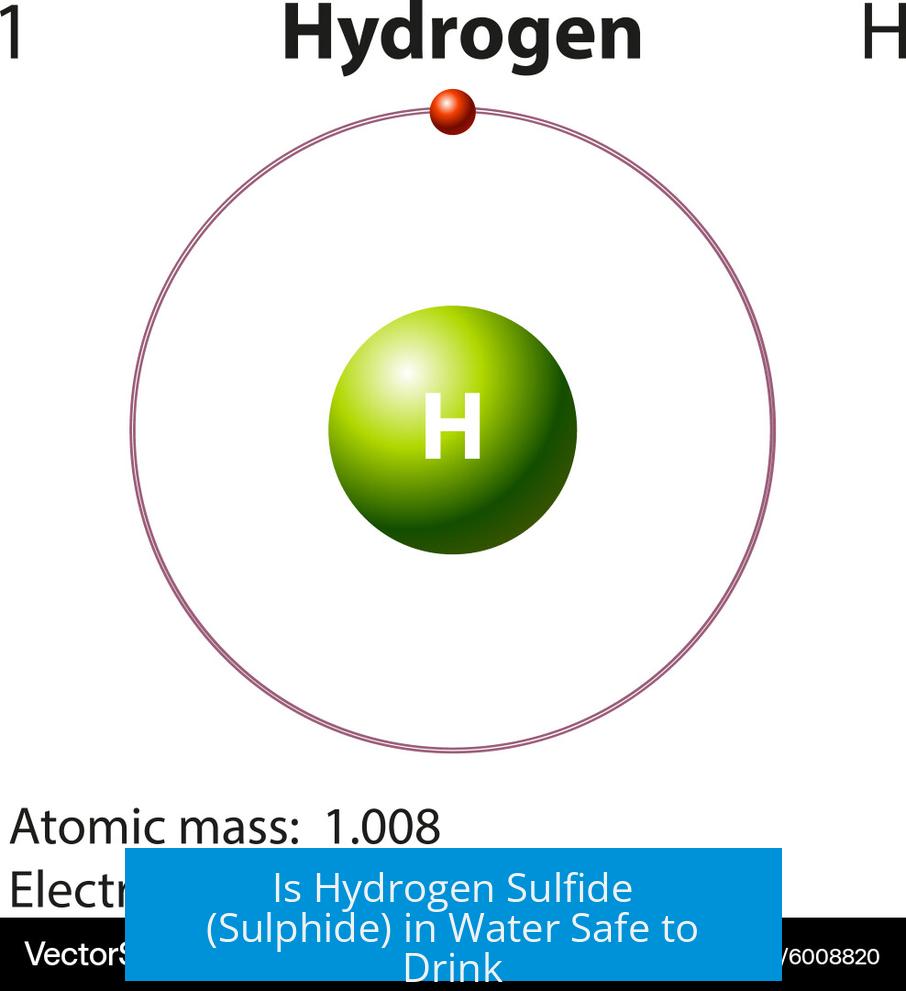
Hydrogen sulfide (H2S) present in drinking water at low levels is generally considered safe to consume because the characteristic rotten egg odor acts as a natural warning. Toxicity is primarily a risk through inhalation at higher concentrations, not ingestion. Regulatory agencies do not currently set formal limits for H2S in drinking water.
Regulatory and Health Guidelines
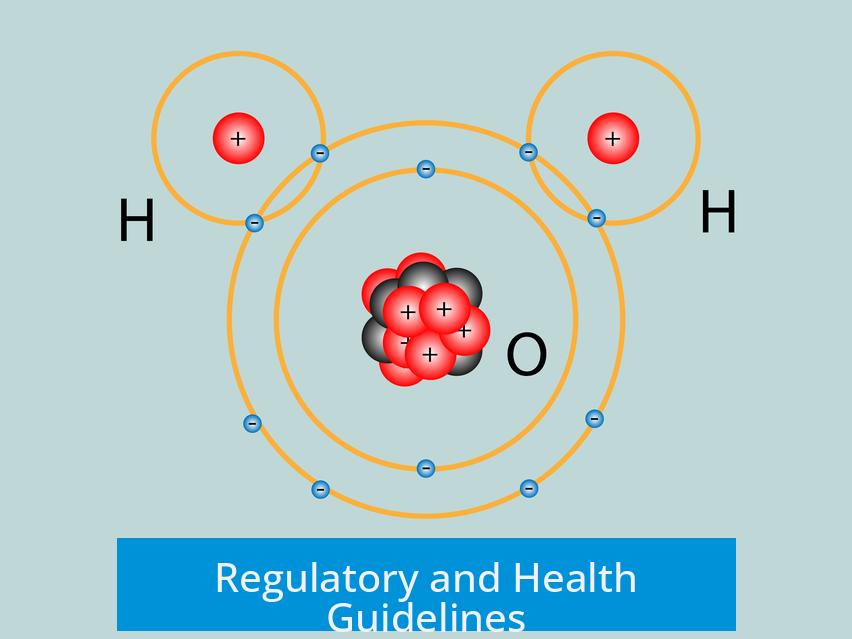
The World Health Organization (WHO) has not established a health-based guideline for hydrogen sulfide in drinking water. The key reason is that H2S’s strong odor usually alerts people at concentrations below harmful levels. In the United States, no federal drinking water standards specifically limit H2S concentrations.
Toxicology and Exposure Routes
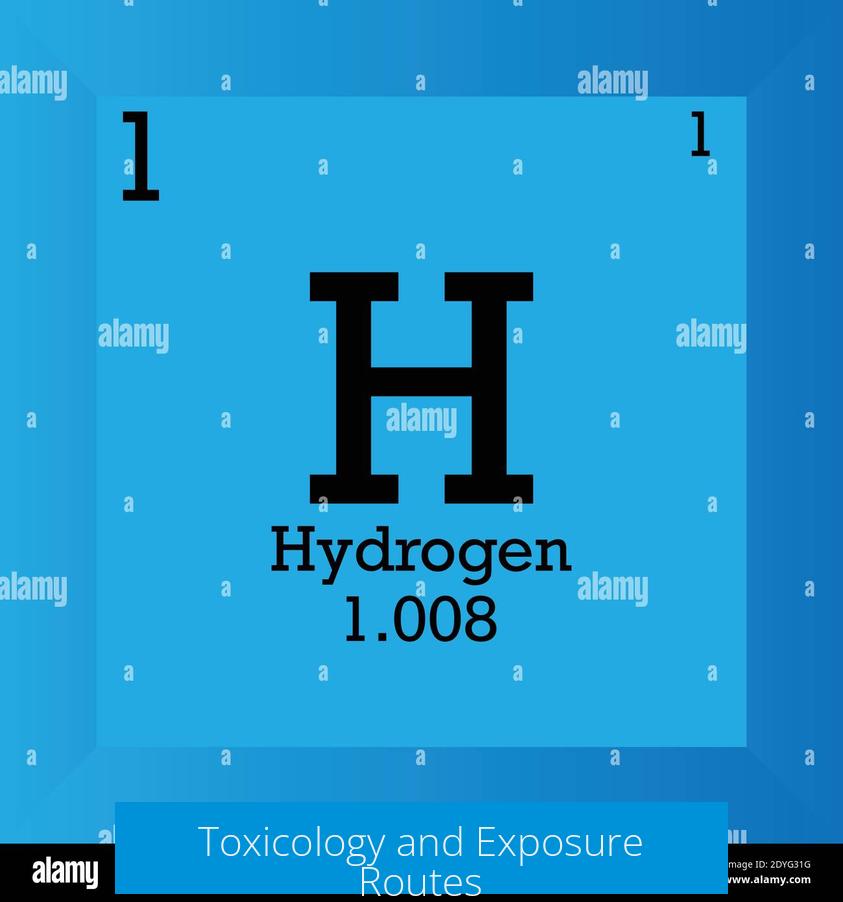
Hydrogen sulfide toxicity mainly arises through inhalation, not oral consumption. Occupational exposure limits focus on inhaled H2S gas, generally capping 10-hour exposure at 5 ppm in industrial settings. The levels found dissolved in water are typically much lower and unlikely to cause harm by drinking.
Detection and Concentration in Water
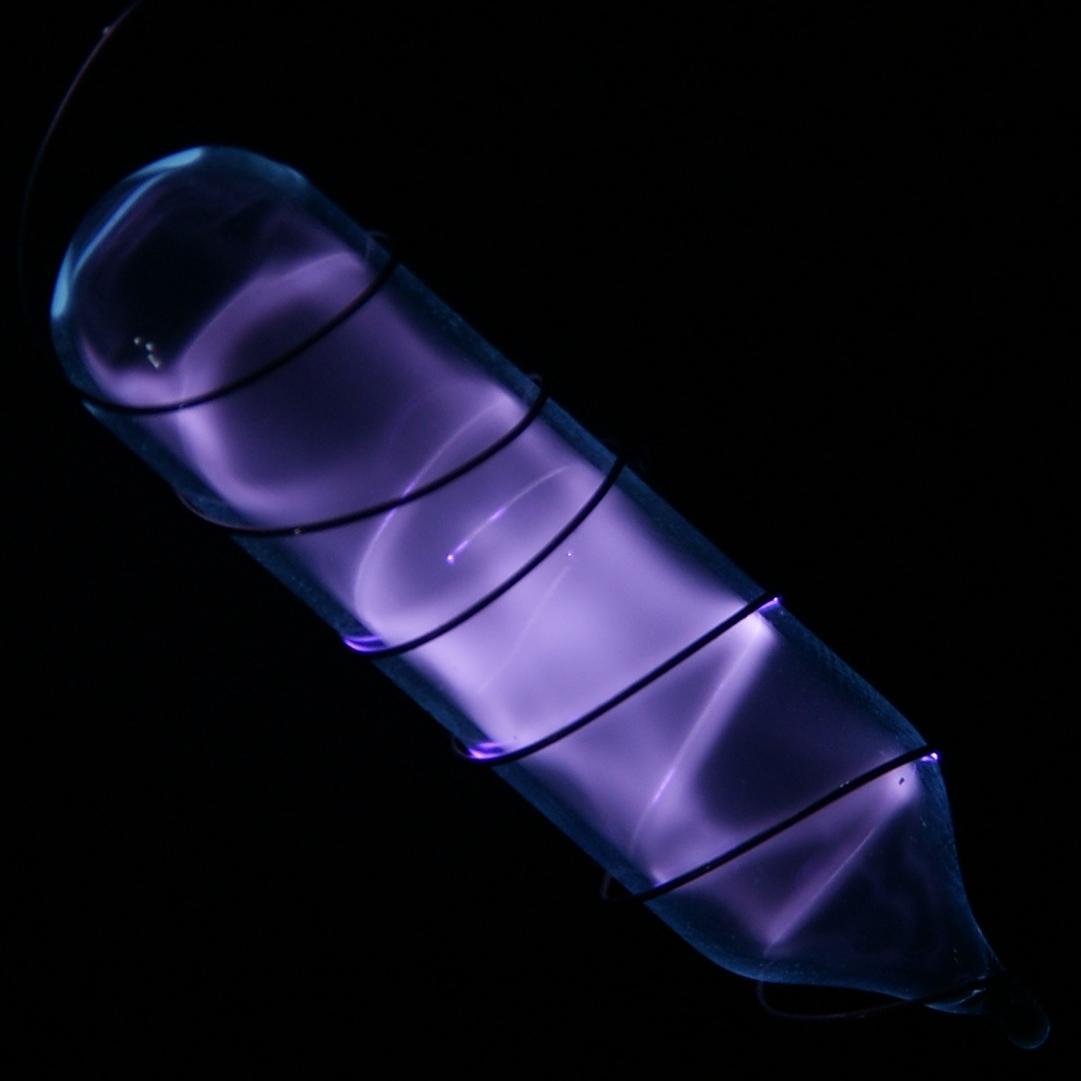
- The “rotten egg” smell caused by H2S is easily detected by most people. Water with H2S concentrations around 20 mg/L usually has a strong, unpleasant odor and taste.
- Because of this odor, individuals tend to avoid drinking water with elevated H2S. This acts as a natural deterrent against ingesting dangerous amounts.
- Dissolved hydrogen sulfide may off-gas when water cools or is exposed to air, reducing concentration before consumption.
Practical Experience and Effects
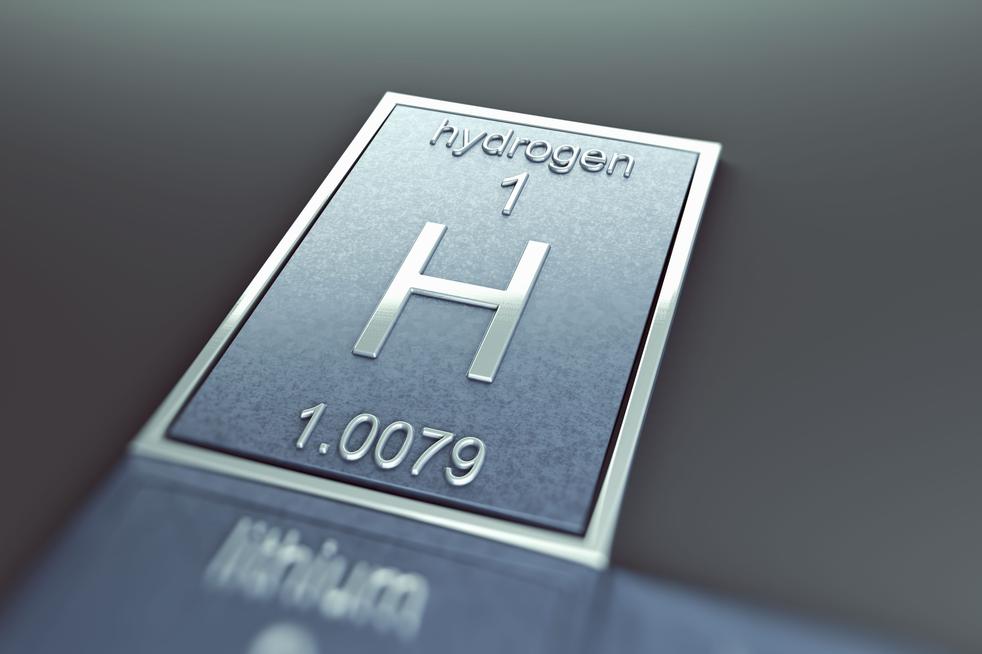
Some individuals report drinking sulfur-rich water without health effects over long periods. For example, a person who regularly consumed “sulfur water” from natural springs into old age experienced no negative outcomes.
Additional Considerations
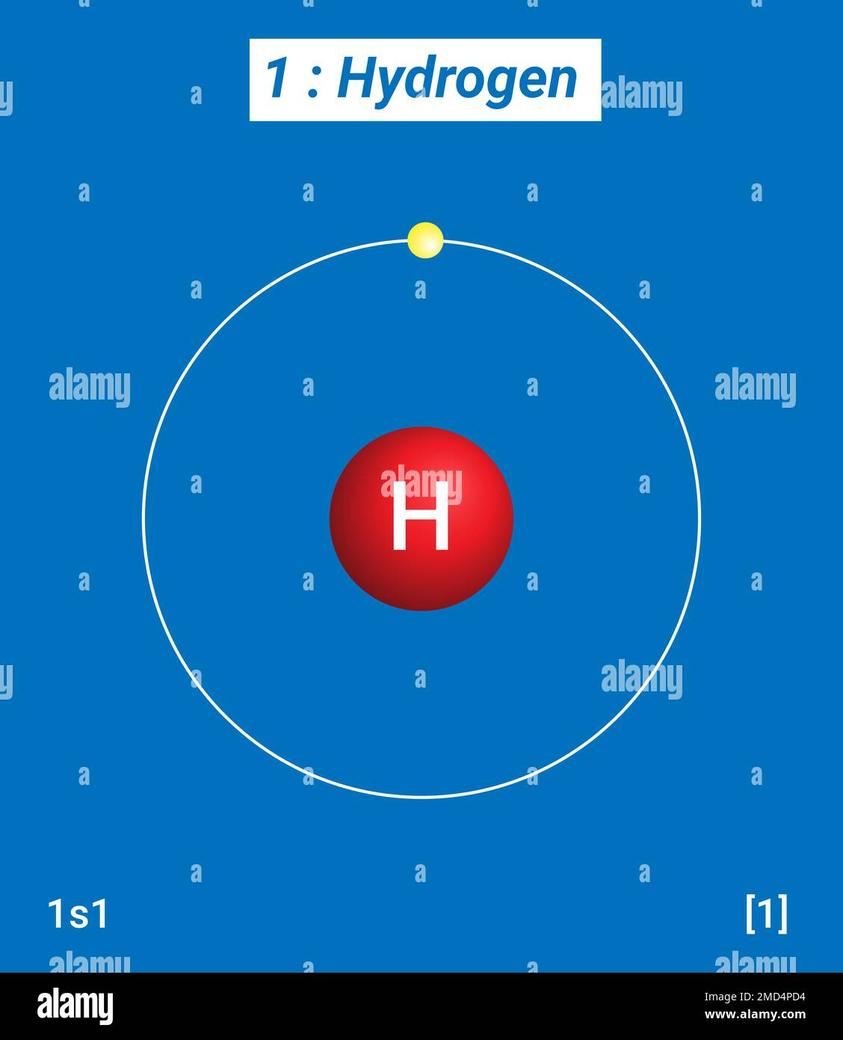
- High hydrogen sulfide levels can cause plumbing corrosion and damage, though this is a separate concern from direct health risks.
- Treatment methods like chlorination can oxidize and remove dissolved H2S from water.
- Intentional inhalation of concentrated hydrogen sulfide vapors is hazardous and should be avoided.
Key Takeaways
- H2S in drinking water is generally safe at low concentrations due to its strong odor acting as a warning.
- Toxic effects primarily result from inhalation, not drinking.
- No official regulatory limits exist for hydrogen sulfide in drinking water from WHO or US federal agencies.
- High levels cause unpleasant taste and potential plumbing issues rather than direct health harm.
- Water treatment can reduce or eliminate dissolved hydrogen sulfide.
Hydrogen Sulfide (Sulphide) in Water – Safe to Drink?
Is hydrogen sulfide (H2S) in water safe to drink? The quick answer: yes, generally it is safe at the low levels found in drinking water, but it depends on concentration and context. Now, let’s unpack this smelly little mystery step-by-step.
Hydrogen sulfide is infamous for its “rotten eggs” smell. Anybody who’s accidentally sniffed it at a groundwater well knows the scent is unmistakable. But does a whiff mean danger? Not necessarily.
The Regulatory Blind Spot: No Official Limits but Watch the Nose
Here’s a curious fact: the World Health Organization (WHO) has no established health-based guideline for hydrogen sulfide in drinking water. That’s right, the global water watchdog steering the standards hasn’t drawn a line in the sand for H2S. Why? Mainly because the chemical’s strong sulfurous smell acts as a natural alarm.
If the water smells like rotten eggs, most folks won’t gulp it down in large amounts. Thus, harmful consumption is unlikely. The UK’s toxicological review echoes this, suggesting the smell threshold usually keeps consumption low. Even in the USA, there’s no federal drinking water standard capping hydrogen sulfide levels.
The Toxicity Angle: Inhalation, Not Ingestion, Is Key
Got your attention? Here’s why. Hydrogen sulfide worries experts mainly when inhaled as a gas in confined spaces—think sewer work, industrial plants, or natural gas leaks—where concentrations can spike dangerously.
Industry exposure limits commonly cap 10-hour exposures at around 5 parts per million (ppm) of H2S. That’s quite a bit higher than what you’d expect in regular tap or well water. By comparison, the levels in drinking water are generally a fraction of that.
So, drinking a smelly glass won’t give you the same risk as standing in a sealed room with concentrated H2S vapor. Still, use caution around any environment with strong sulfur gas build-up—that’s a different hazard altogether.
The Nose Knows: Sensory Detection as Your Safety Guide
How much hydrogen sulfide is too much? Around 20 milligrams per liter (mg/L) – or 20 ppm – makes water smell downright foul. That strong rotten egg stench in your glass is nature’s warning sign to cut your losses.
Fortunately, most water supplies have much lower levels, which means any sulfur smell is faint or nonexistent. Since hydrogen sulfide is volatile, it often off-gasses (think bubbles escaping) before you even drink it, reducing concentration further.
In short, If your water smells badly of sulfur, you probably shouldn’t be drinking it without treatment. But if the smell is very faint or absent, the amount of H2S is likely harmless for consumption.
Real People, Real Experience: Sulfur Water Isn’t Always Off-Putting
Here’s a personal twist. Someone shared that as a kid in the 1950s and 60s, they frequently drank sulfur water at Alum Rock Park in Santa Clara County—and lived to tell the tale happily at 75 years old. That’s anecdotal, but it hints that low-level H2S intake from natural sources isn’t necessarily harmful for long-term health.
Still, personal anecdotes aren’t a substitute for careful assessment. Knowing the source and concentration matters.
Not Just Health: Plumbing Problems and Treatment Tips
While hydrogen sulfide at drinking water levels isn’t a major health hazard, it can cause headaches for your plumbing. The gas can corrode metal pipes, cause rust-colored water, and create unpleasant odors around your faucets and drains.
For homeowners or utilities battling H2S in the mind of plumbing damage or nuisances, chemical treatment is usually effective. Chlorine, for example, is often used to oxidize and neutralize hydrogen sulfide, tackling the odor and potential corrosion issues.
So What’s the Verdict? Should You Worry?
If your tap water smells like rotten eggs, it’s time to investigate. Should you test levels of hydrogen sulfide and consider treatment options? Absolutely. But if your water passes the nose test with no strong odor, it’s generally safe to drink, and you need not fret about microscopic traces of this gas.
Inhaling concentrated H2S vapors, such as from letting sulfurous water stew in a container sealed tight, is a very bad idea. Don’t try to ‘huff’ the vapors like some odd science experiment. That’s where the real toxicity kicks in.
Final Thoughts for the Curious Consumer
- Trust your nose: If it stinks like sulfur, don’t sip without testing or treating.
- Remember, low-level H2S in water rarely poses a health risk via ingestion.
- If plumbing corrosion or foul odors annoy you, consider chlorine treatments or professional advice.
- Never intentionally inhale concentrated hydrogen sulfide vapors—seriously, don’t do it.
Hydrogen sulfide in drinking water may sound scary, but it’s usually more stinky than harmful. Nature gave us warning smells so we could avoid trouble—and that smell is often your best guide. Next time you encounter a whiff of rotten eggs in water, you’ll know the science behind the stink and what steps to take.
Is hydrogen sulfide in water harmful to drink?
Hydrogen sulfide in water is usually at low levels. The rotten egg smell often warns of its presence. Drinking water with low H2S is generally not harmful.
Why does hydrogen sulfide smell like rotten eggs in water?
Hydrogen sulfide naturally smells like rotten eggs. This odor acts as a warning when its concentration is high enough in water.
Are there any regulatory limits for hydrogen sulfide in drinking water?
No global health-based guidelines exist. The WHO has not set a limit, and in the USA, no federal drinking water standard regulates H2S.
Can hydrogen sulfide in water cause health issues by inhaling its vapors?
Toxicity mainly occurs through inhalation at high concentrations. Normal water levels rarely pose a risk unless H2S is intentionally concentrated in enclosed spaces.
Does hydrogen sulfide damage plumbing systems?
High H2S levels may cause plumbing problems but are not directly harmful to health. Water chemistry factors like pH and hardness also influence these issues.
How can hydrogen sulfide in water be reduced or treated?
Chlorination is a common method to oxidize and remove hydrogen sulfide from water, improving taste and reducing odor.


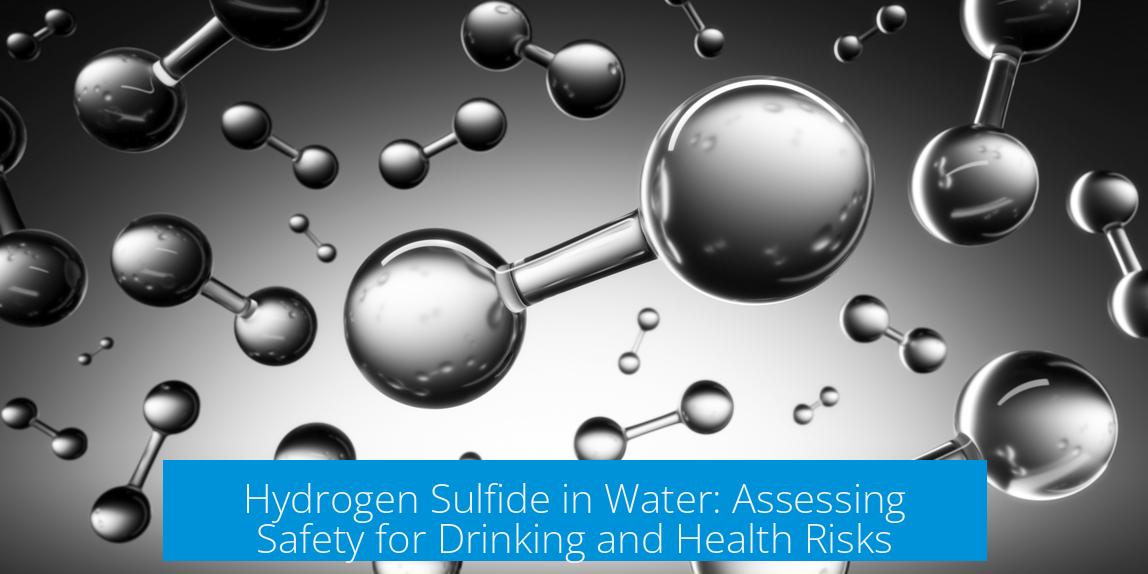
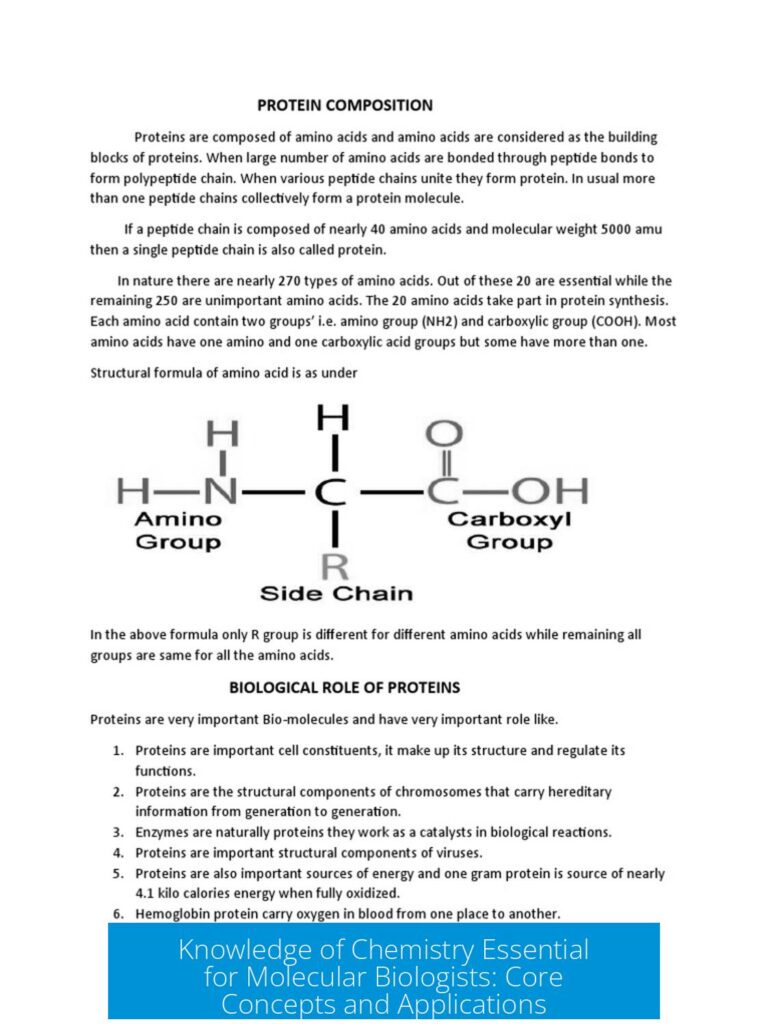
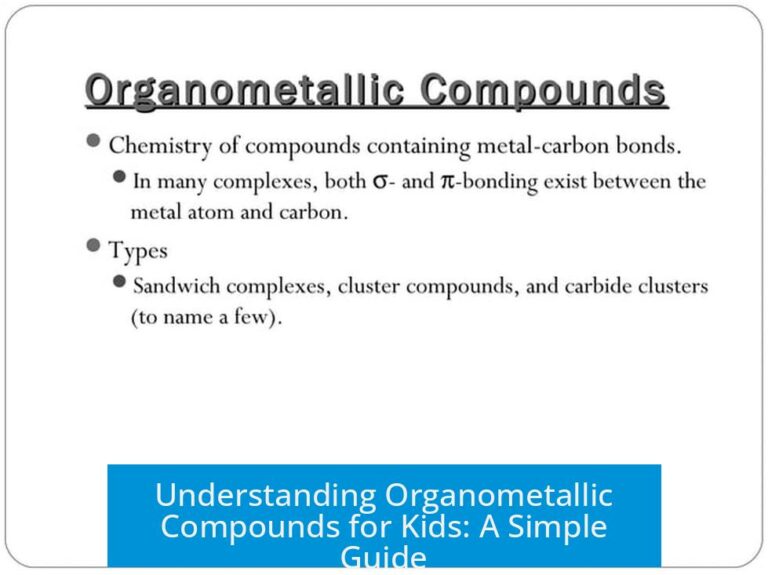
Leave a Comment